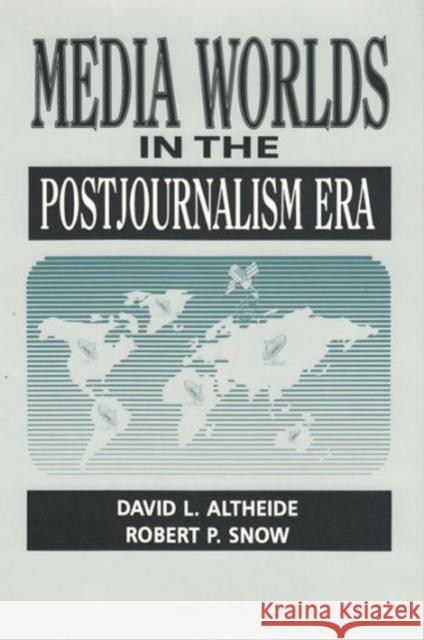Media Worlds in the Postjournalism Era » książka
Media Worlds in the Postjournalism Era
ISBN-13: 9780202303765 / Angielski / Twarda / 1991 / 274 str.
The concept of media logic, a theoretical framework for explaining the relationship between mass media and culture, was first introduced in Altheide and Snow's influential work, Media Logic. In Media Worlds in the Postjournalism Era, the authors expand their analysis of how organizational considerations promote a distinctive media logic, which in turn is conductive to a media culture. They trace the ethnography of that media culture, including the knowledge, techniques, and assumptions that encourage media professionals to acquire particular cognitive and evaluative criteria and thereby present events primarily for the media's own ends. Case studies and examples of the mass media presentation of entertainment, news, politics, organized religion, and sports during the past twenty years illustrate how scheduling, sources of information, style, format, and professional awards influence how the world is portrayed in the various media. The authors analyze the influence of media logic on society's perceptions and judgments of issues and its impact on public opinion, culture, and social institutions.











